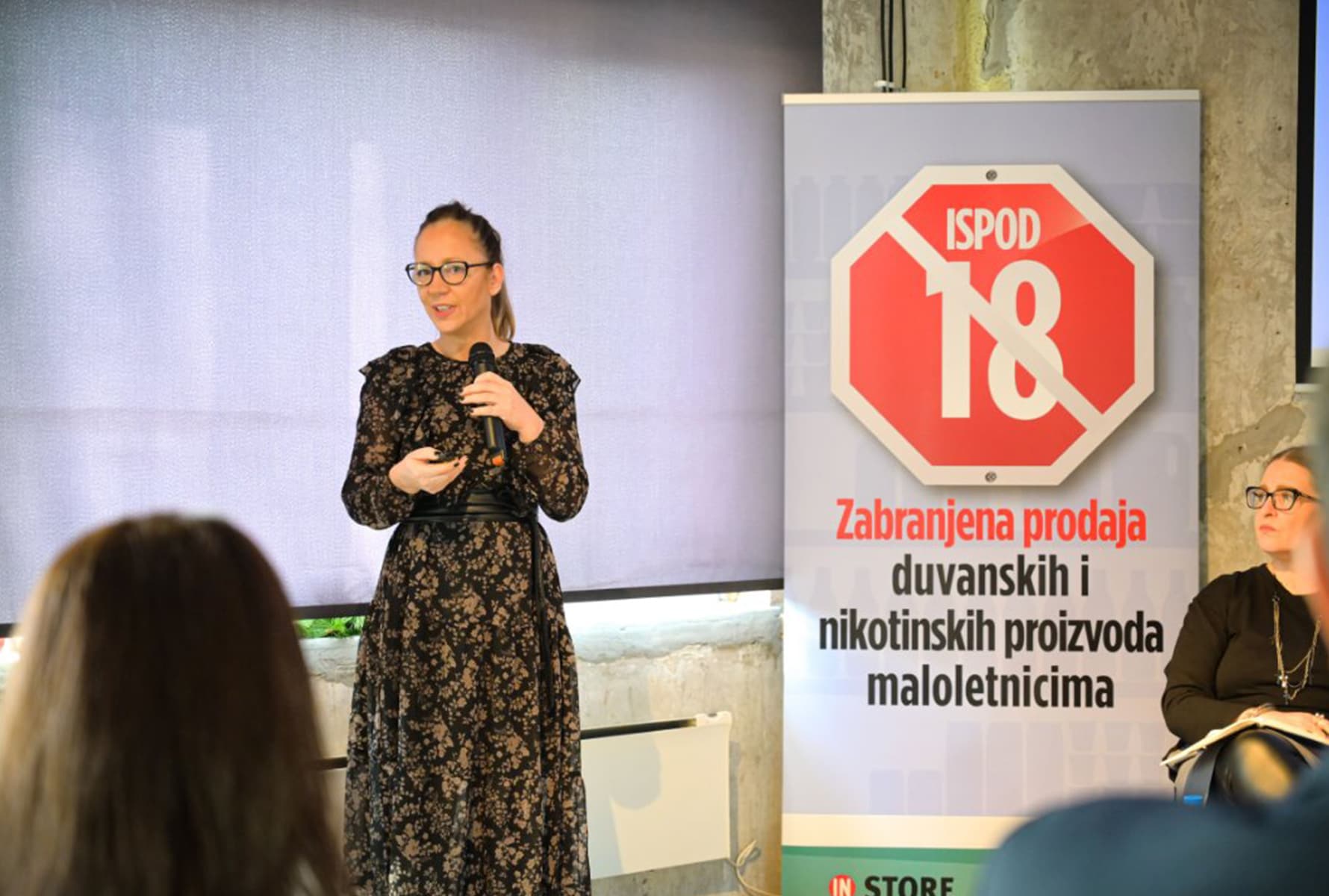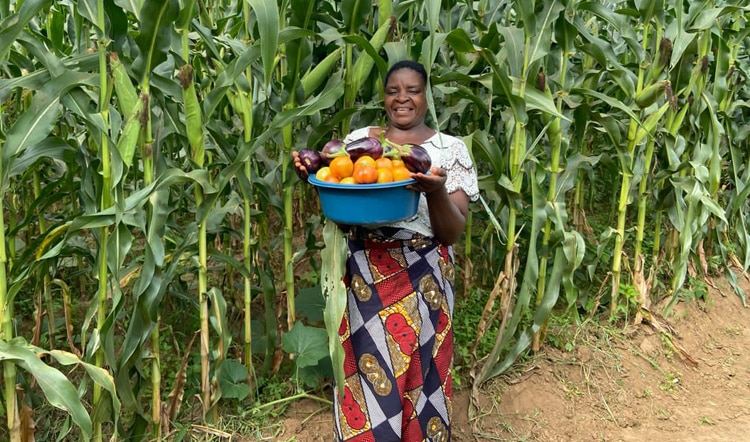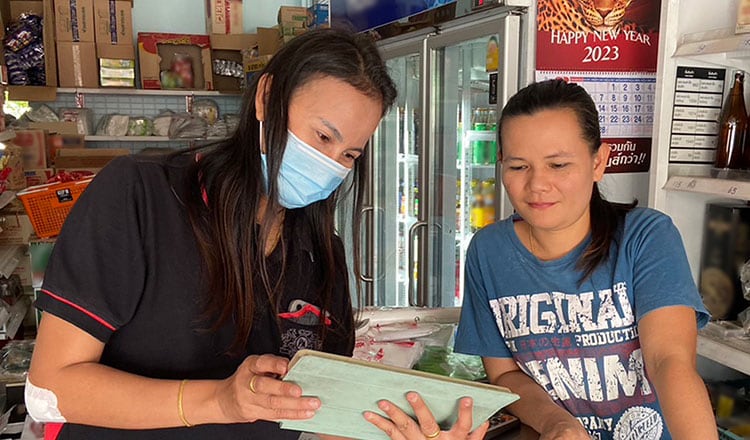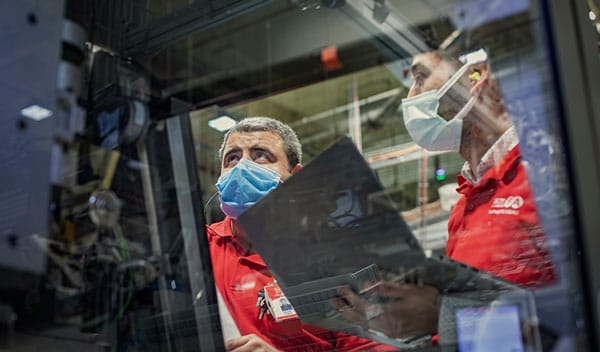Philip Morris International (PMI) has a clear goal: To replace cigarettes with better, smoke-free alternatives. However, as a responsible company, we also must ensure that these products are not used by unintended audiences, including minors.
With robust youth access prevention programs in place globally, we maintain a proactive stance—something our team in Serbia can attest to. In 2022, they were preparing to launch their first e-cigarette on the market. This led the team to support a proactive campaign aimed at raising awareness of the responsibility retailers had to prevent minors from accessing e-cigarettes.
“We took this challenge on board before we launched our products in the market, so that together we could do our utmost to limit minors’ exposure and access to nicotine and tobacco products,” said Radmilo Vlačić, PMI’s Commercial Operations Director for Serbia & Montenegro.
The campaign also highlighted the youth access prevention measures and practices that PMI already has in place and how they worked with their sales and retails partners to limit minors' access to smoke-free products.
A time for change
In October 2022, Roditelj (“Parent”), a parenting-focused non-governmental organization (NGO), released a poll about parents’ attitudes toward e-cigarettes and what they knew about how minors buy and use them. This poll clearly revealed the parents’ concerns and formed the basis of a roundtable with retailers organized by InStore magazine (a B2B retailer magazine) and supported by PMI in December 2022, ahead of PMI’s Serbian launch of its e-cigarettes.
The panel, which included PMI’s Radmilo Vlačić, discussed youth access prevention strategies and responsible sales and marketing practices for nicotine-containing products. PMI retail partners and the media were invited to the event, which encouraged audience engagement, prompting an open discussion of the topics. In addition, for retailers who agreed to follow the guidelines shared during that roundtable, PMI provided “We don’t sell vapes to minors” stickers to place in their shops.
Target: Zero tolerance
PMI itself has a robust requirement of all its retail partners: They must not sell any PMI nicotine products to minors.
Vlačić said: “Here in Serbia, we currently have several smoke-free alternatives to cigarettes. There’s our heated tobacco device, and we’ll soon launch our two e-cigarette brands.
“Although addictive and not risk-free, these products significantly reduce the levels of harmful chemicals compared with cigarette smoke, but they are intended for existing adults who would otherwise continue to smoke or use nicotine products. They must not be available to minors.
“Therefore, at our points of sale and in sales channels where we have some limited influence, we insist on clear age-verification procedures.”
But others in the market were not held to the same standards, meaning retailers had no incentive to prevent minors from buying the products. This issue was discussed at the roundtable.
“Electronic cigarettes are currently readily available to minors, which is unacceptable,” said Gordana Plemić, Director and Founder of Roditelj. “Eighty-three percent of children claim no one asks them for their age, but 99 percent of parents believe selling to minors1 should be prohibited.
“Serious companies, such as those represented here, can significantly contribute to a zero-tolerance policy for the sale of all tobacco and nicotine products to minors.”
A positive contribution
The Serbian Law on Tobacco Products was amended in November 2023. One of the main changes was the expansion of product categories to include all nicotine products (not just cigarettes) in the “sale to minors” ban.
As our 2023 Integrated Report shows, we have strengthened governance of our youth access prevention (YAP) programs, with 98 percent of PMI’s total shipment volume covered by such programs in our indirect retail channels.
To be considered for having a YAP program in place, a market must deploy the program’s three mandatory pillars, including trade communication, trade education, and point-of-sale materials placement (stickers). The required number of indirect points–of-sale to be covered by each pillar, referred to as “reachable coverage,” varies for the different activities (e.g., some require a physical visit to the points-of-sale, whilst other activities can be deployed digitally).
In addition, we have developed a holistic and comprehensive approach to guard against youth access to our products. These measures primarily consist of ensuring that, when attempting to purchase our products, potential buyers are age-verified across all access channels, including PMI-managed boutiques, PMI e-commerce platforms, third-party retailers, and online marketplaces.
Whilst our control over these channels varies, we make every effort to guard against youth access to our products regardless of the point-of-sale.
With an eye on the future, the Serbian team hope the relevant government bodies will support the enforcement of the law and prevent minors from using tobacco and nicotine products.







